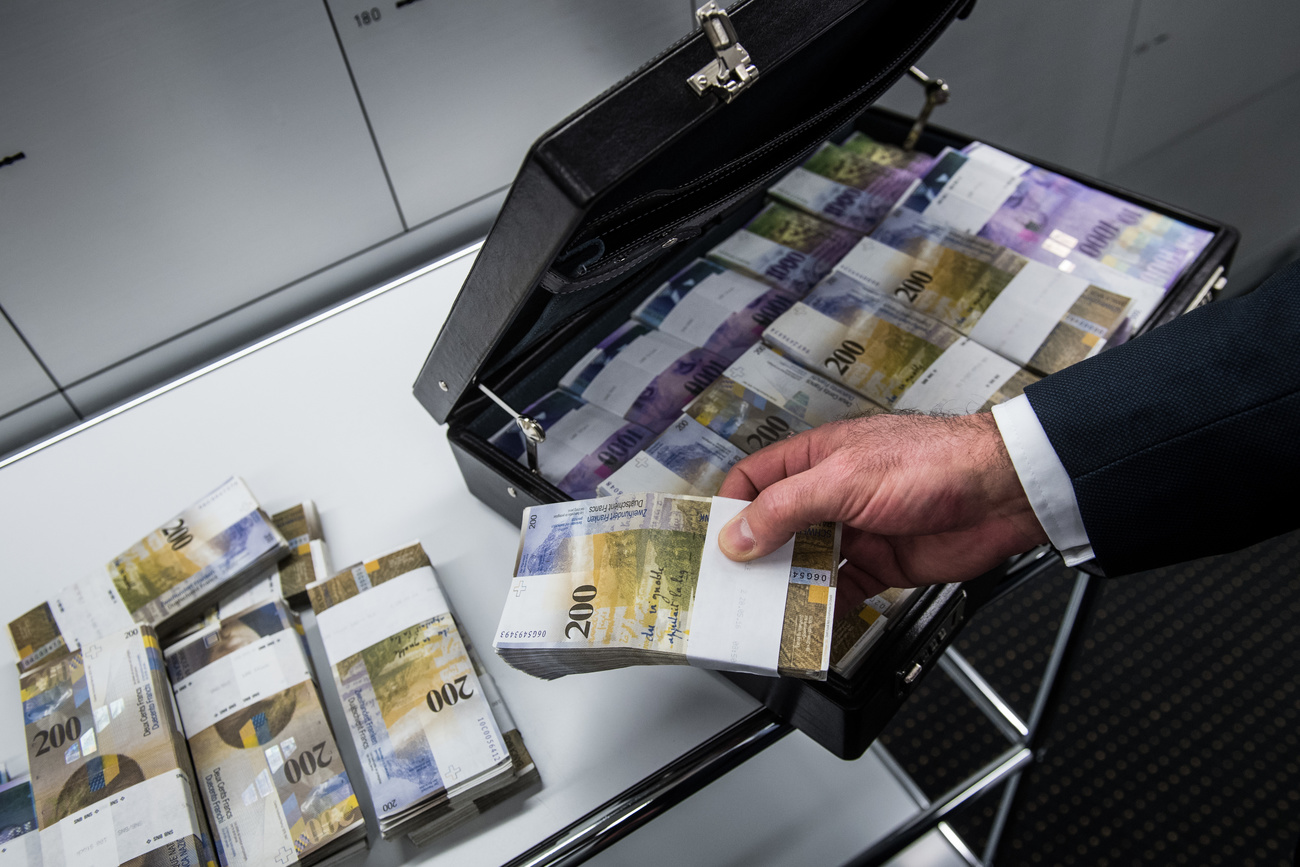Switzerland doing too little in fight against money laundering, says expert

The Swiss parliament has voted not to submit lawyers and financial advisors to due diligence requirements under the revised Anti-Money Laundering Act – a decision that effectively dilutes the text of any substance, according to Swiss lawyer Katia Villard.
The proposed modifications to the Anti-Money Laundering Act were meant to bring Swiss law in line with international standards. But the changes which lawmakers ultimately agreed on last week following lengthy debates in the chambers fall short of requirements.

As far back as 2005 the global watchdog, the Financial Action Task Force (FAFT), recommended that lawyers and financial advisors be included in Swiss legislation against money laundering. Sixteen years later, parliamentarians continue to refuse to follow through on this measure, as proposed by the government.
The revised text contains some modest changes: financial intermediaries will be required to verify the identity of clients, report which services they have provided, and clarify their background and purpose. This information will be subject to periodic checks.
With this revision, all that the parliament has done is to simply endorse existing practices, says Katia Villard, a lecturer at the Centre for Banking and Financial Law at the University of Geneva.
SWI swissinfo.ch: Does the fact that lawyers and other financial advisors are not subject to the anti-money laundering law weaken its effectiveness?
Katia Villard: This is indeed a loophole, which was actually addressed at the international level a long time ago. It was identified as a risk area for money laundering. There is no reason why it shouldn’t be subject to legislation.
SWI swissinfo.ch: Are there other flaws in the revised text that parliament has adopted?
K.V.: Lawmakers also refused to tighten up requirements for dealers of precious metals. The government’s proposal was to reduce the maximum amount that these dealers can accept in cash payments to CHF15,000 ($16,200), which corresponds to the ceiling set by the European Union.
The parliamentarians chose to keep the maximum to CHF100,000. And yet today no one walks around with this amount of money in their pockets to buy a gold bar. Once again, it’s difficult to understand the factors that compelled these elected representatives to stick to their positions.
SWI swissinfo.ch: The law was watered down during the debates. But has the fight against money laundering in Switzerland been given a boost nonetheless?
K.V.: No, this legislative revision is much ado about nothing. The changes that were accepted simply allow us to enshrine existing practices into law. The only improvement relates to associations that collect or distribute funds abroad for charitable purposes and for religious, cultural or social causes. They’ll be subject to greater transparency. But this remains a minor point.
SWI swissinfo.ch: Will international groups such as the FAFT, which issued recommendations, make the same demands again?
K.V.: Yes, the international community will continue to demand that lawyers be included in the law. I think the parliamentarians miscalculated, because this measure will eventually be approved at a time when Switzerland perhaps no longer has room to negotiate. The text that is adopted then might be even tougher than the version proposed by the government. We have seen this happen with previous revisions of the law against money laundering. Switzerland resisted until it was forced and coerced. And the result was that the law was tougher in the end than it would have been if it hadn’t been forced through.
SWI swissinfo.ch: Are you worried that there will be new money-laundering scandals implicating the Swiss financial sector?
K.V.: Unfortunately there will always be scandals, and not just in Switzerland. All of the big financial centres are exposed. With every new case, we will wonder how it could have happened. The problem above all is the message we are sending to the rest of the world: Switzerland is staying passive in the fight against money laundering – it doesn’t want to strengthen its legislation for reasons that don’t hold water. It’s short-term policy-making – the issue will resurface.
SWI swissinfo.ch: Which country could serve as a model for Switzerland to improve its anti-money laundering legislation?
K.V.: EU regulations are very detailed but I think the [Swiss] government’s proposal was balanced. It would have been an effective tool. But the problem isn’t just the law – it’s also about implementation. In the [Brazilian] Petrobras scandal, for example, the legal tools were there but they were not applied correctly. We didn’t pay enough attention. Maybe we turned a blind eye.

In compliance with the JTI standards
More: SWI swissinfo.ch certified by the Journalism Trust Initiative












Join the conversation!